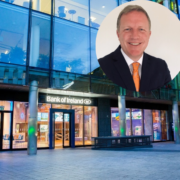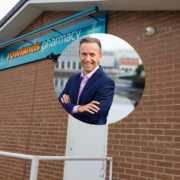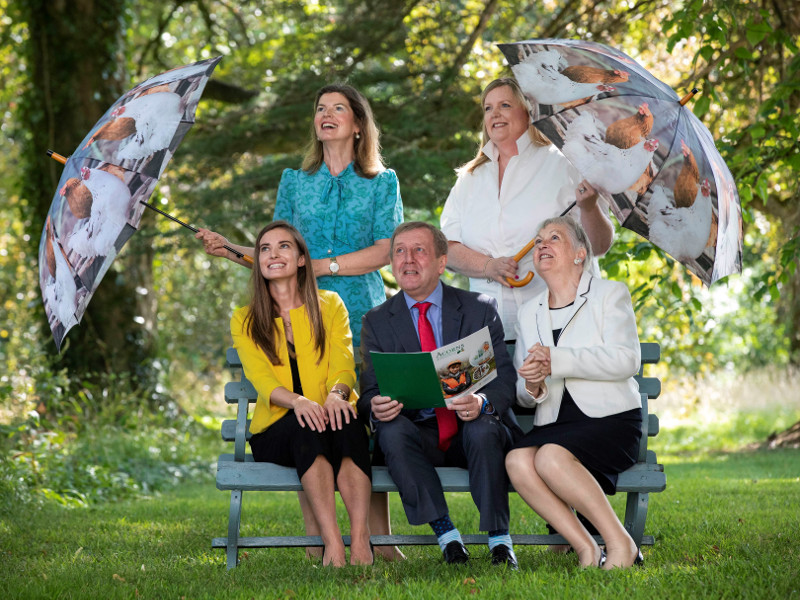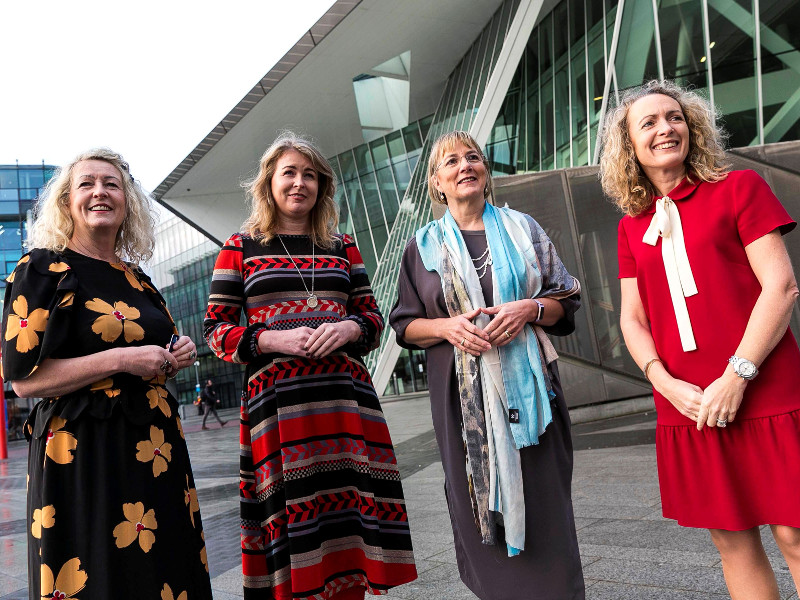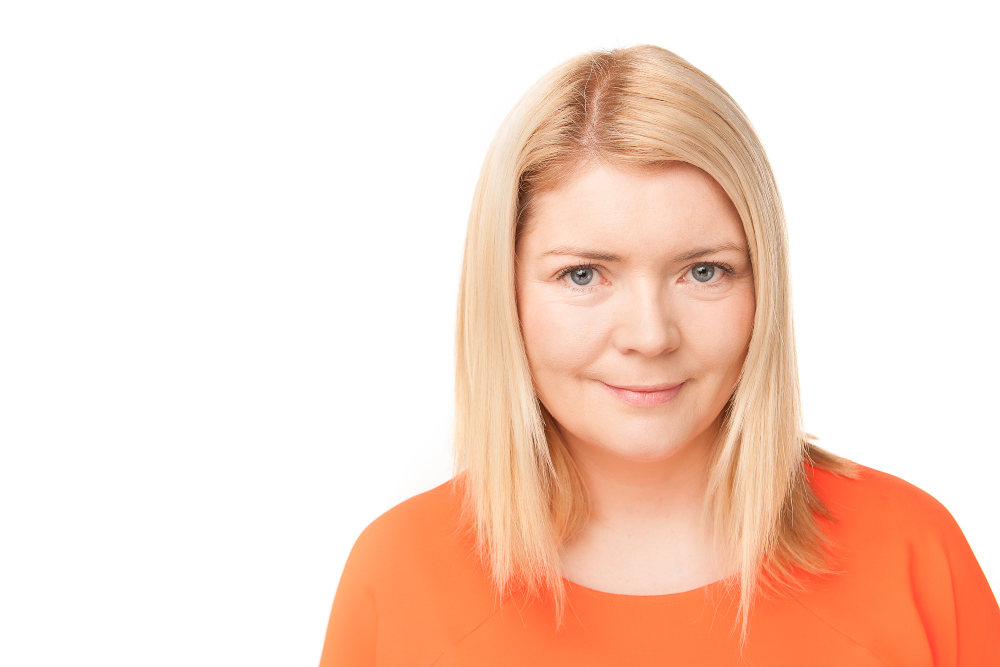Passionate about supporting women entrepreneurs throughout rural Ireland Paula Fitzsimons, creator of ACORNS, Going for Growth and Back for Business, says we need to be honest about how challenging entrepreneurship really is and appropriately support those starting new businesses.
“The glamour and gloss attributed to entrepreneurship in recent years may give the illusion that entrepreneurship is easy. This can be misleading and may minimise the real challenges that entrepreneurs face.”
At first it feels like a bit of a surprising opinion from Paula Fitzsimons, founder of entrepreneurship development programmes such as ACORNS, Back for Business and Going for Growth, that have supported hundreds of entrepreneurs. But when you understand her modus operandi, it all makes sense.
“One of the most important things that we can do is to reduce the psychological isolation of being an entrepreneur”
The initiatives are about much more than enterprise development. Although this happens in spades. The secret sauce is peer support, the strengthening of the entrepreneur and the development of collaborative networks.
Entrepreneurship and start-up life can be lonely and isolating. The value of the networks Fitzsimons has spearheaded is the camaraderie, collaboration, and creation of support systems that could potentially endure for decades.
Planting the seeds
In recent weeks the Department of Agriculture, Food and the Marine which funds ACORNS (Accelerating the Creation of Rural Nascent Start-ups) revealed that the group of early-stage women entrepreneurs, who took part in the latest ACORNS programme, doubled their combined turnover to €3.1m in just six months.
The next cycle of the programme kicks off with a forum and first round table session on 24 and 25 October. A call is currently open for applications from women in rural locations, who have a new business or a well-developed idea for a business, to apply for the eighth year of the initiative. To be eligible, a founder must have set up a new business that has not generated sales before the end of June 2019. They must own or part-own a business that is outside the administrative city boundaries of Dublin, Cork, Galway, Limerick, and Waterford. They must also hope to become an employer within three years.
Anyone interested should register on www.acorns.ie to receive an application form. The closing date for receipt of completed application forms is 23rd September. Because of the support of the Department of Agriculture, Food and the Marine and the voluntary contribution of time by the Lead Entrepreneurs, there is no change for those selected to participate. The call is now open for applicants for ACORNS 8 and 50 female entrepreneurs from across the country will be selected to participate. Anyone interested in receiving an application form ahead of the midnight 23 September deadline for ACORNS 8 should register their interest here
A rising tide lifts all boats
Speaking with ThinkBusiness ahead of our latest series, which highlights stories from participants from the latest group of ACORNS, Fitzsimons says that the stories of these founders are important. “They will attract more enterprising women in rural Ireland to apply and avail themselves of the opportunity that ACORNS presents. They illustrate that the participants come from all over the country and are in different sectors, from tech to making chocolate or food or in the environmental space.
“These ladies have started their businesses after conceiving an idea, gathering resources, and implementing. Often they don’t realise it themselves, but they are already role models within their family and within their communities.”
If selected, the participants on ACORNS 8 will meet with their group and Lead Entrepreneur once a month over a six month cycle.
“The power of the roundtable is not only to get them focused, but to lift and elevate their ambition, their confidence and to give them a much clearer view of what they want to achieve and how to do it.”
“What we often see is an increase in confidence, in motivation and a sense of having found their tribe. They are now part of a much stronger network. With the continued support, which extends beyond a single cycle, they continue to support each other, bounce ideas of each other and push each other forward.”
By strengthening the entrepreneur, the business she is pursuing is strengthened as well. Comparing the position of the business in terms of sales, employment and market focus at the beginning and end of a cycle, the participants report significant growth and enterprise development. They surprise themselves at their level of achievement over a six-month period.
Notwithstanding the positive outcome of these initiatives, and as enthusiastic as Fitzsimons is to encourage entrepreneurs, she is very clear: “Starting a business is not a panacea. It can be hard. It can be lonely. It doesn’t always work out.”
“One of the most important things that we can do is to reduce the psychological isolation of being an entrepreneur. Knowing you have a tribe of people like yourself who are setting up businesses that you can talk to and share problems with is crucial. If you can overcome the psychological isolation, you will become more resilient, when the challenges inevitably arise. ACORNS provides that support system.”
“ACORNS also adds in accountability. The participants commit themselves to meeting certain goals and milestones over the six-month cycle. It is their goals and milestones. No one else’s. They check in each month with the group on their progress to meeting those. The participants support each other to achieve these goals and in effect apply good peer pressure. The result is that the entrepreneurs achieve more in the six month cycle than they thought possible.”
“That’s why the roundtables are the backbone of ACORNS, because it is about entrepreneurs supporting entrepreneurs. While all the businesses around the table are different, as we would never put competitors around the same table, the participants soon realise that across the different sectors they are similar issues as they are all nascent, early-stage companies. They are about to start trading or have only recently begun trading. And it’s a very challenging, but a very exciting time.”
“Here you have a round table of people who are like yourself. These roundtables are facilitated by a voluntary Lead Entrepreneur. I choose the term advisedly because the voluntary Lead Entrepreneur is not a mentor, she’s not a professional trainer and she’s not a consultant. She is someone who has walked down the road ahead of some of those early-stage entrepreneurs. All the ACORNS Lead Entrepreneurs have started and grown a business in rural Ireland. She understands the same issues and how they affect women starting businesses in rural Ireland.”
“On one hand they are a role model, but they also have that empathetic understanding of where the entrepreneurs are coming from.”
“If I was to give a tip,” says Fitzsimons, “it would be around clarity of purpose and being customer focused.
“I think that when entrepreneurs have a clear mission, when they are clear as to what they are doing and why they are doing it, they feel empowered by that.”
Fitzsimons says the appetite for entrepreneurship is strong in rural Ireland. “We would get between four and five applications for every place. So there’s a great appetite out there among enterprising rural women for the support offered by ACORNS.”
More and more women are aspiring to start a business and more and more women are actually starting their own businesses. In Ireland around 1,400 women every month are starting businesses, catching up with men who are starting businesses at a rate of 2,000 per month.
“The caveat to that is, unlike being employed by others, when you are self-employed, you may have less good terms and conditions. For example. if you need time off, to take maternity leave or have caring responsibilities or just need to take a holiday, who’s going to take care of your customers?”
This latter point was partly the inspiration behind the Going for Growth programme aimed at helping Irish businesswomen to be ambitious and to support them to realise their growth aspirations.
Fitzsimons concludes that the imperative should be to get these businesses to a point where they are employing others, so the owner has the resources to take time out just like anyone else.
“We are endeavouring to support them appropriately, to help them realise their potential. For ACORNS one of the criteria is that they must expect to become an employer within three years. If employees are brought in, not only does it mean the entrepreneur won’t burn out, the business becomes more sustainable, which is also good for the economy and rural Ireland overall.”

